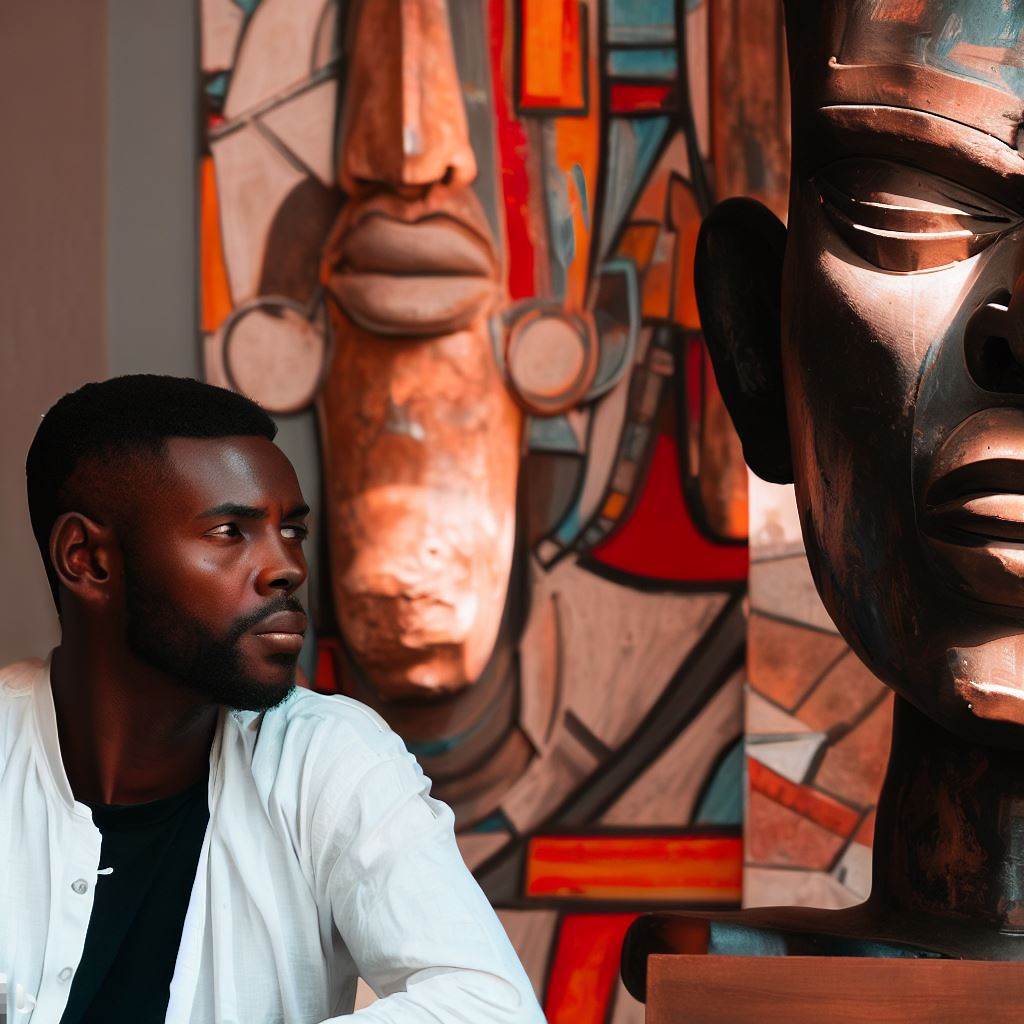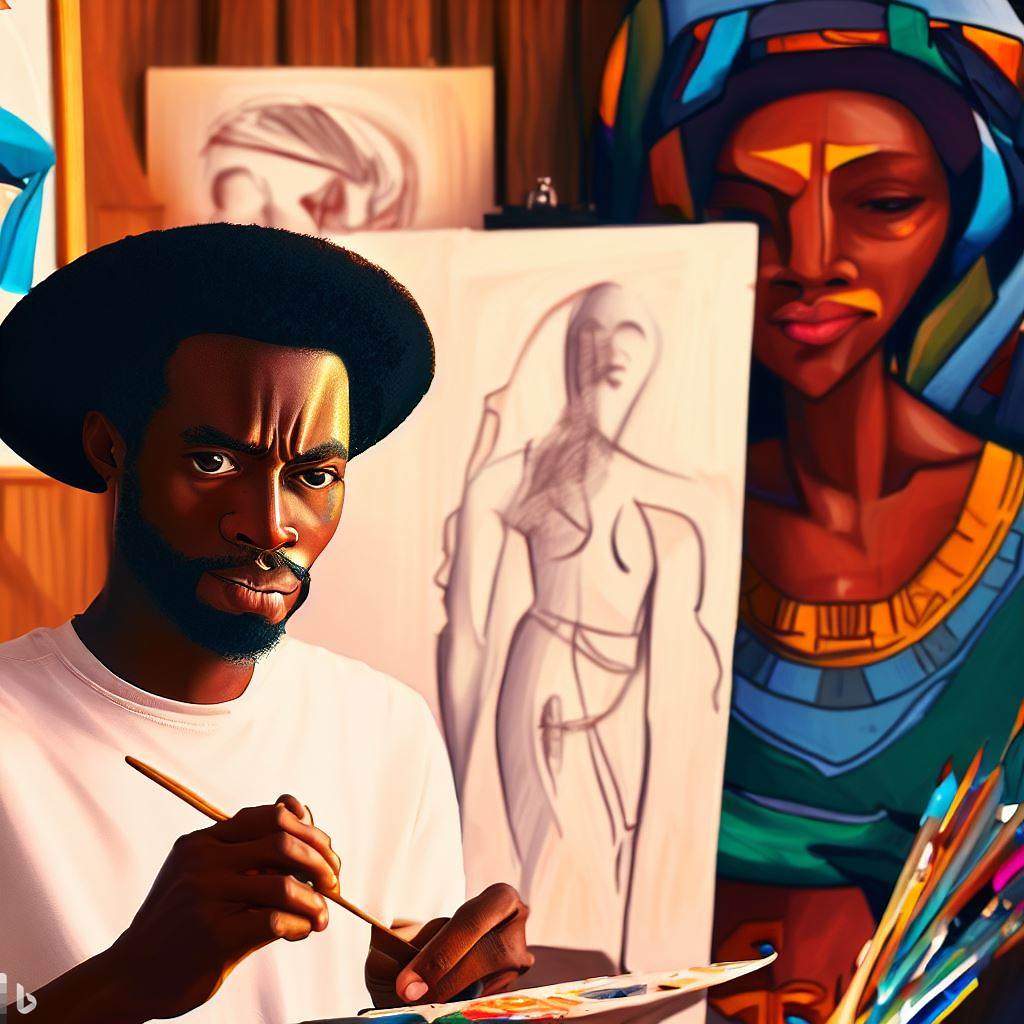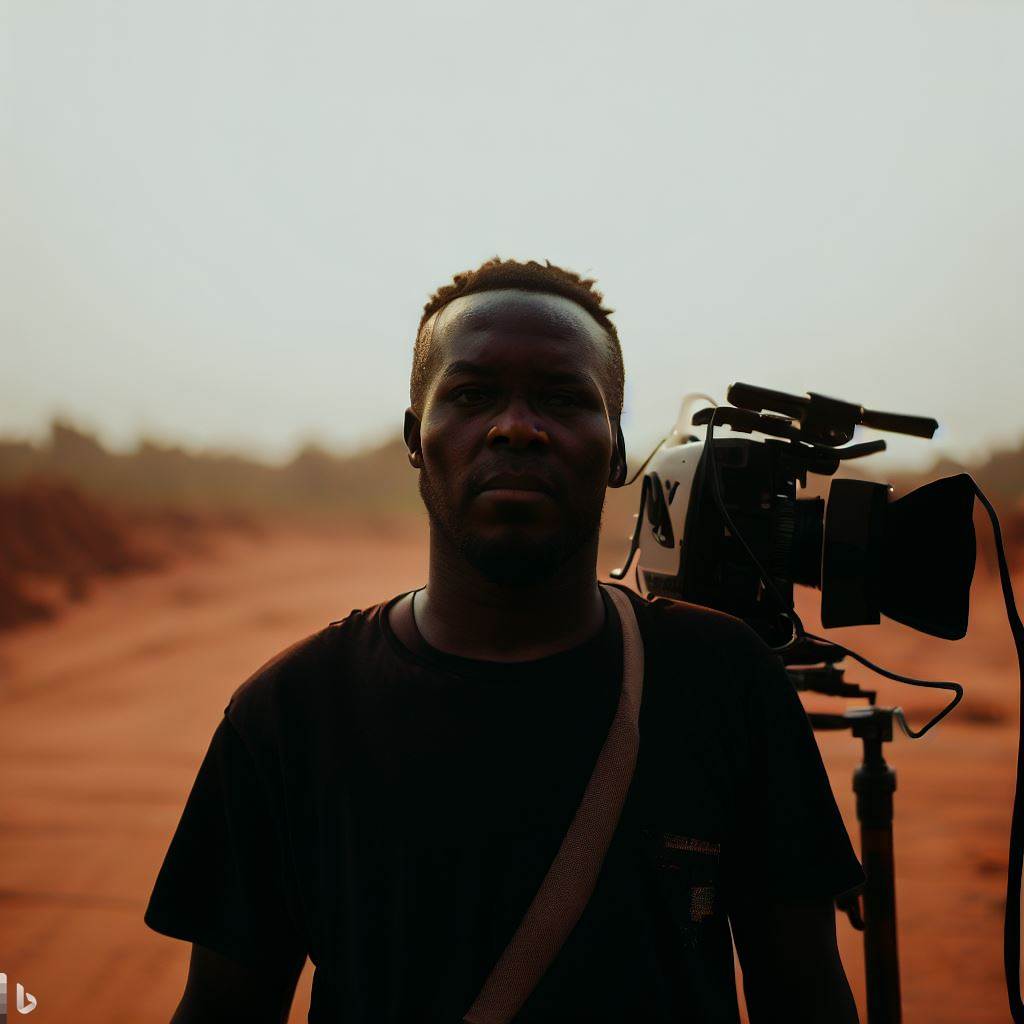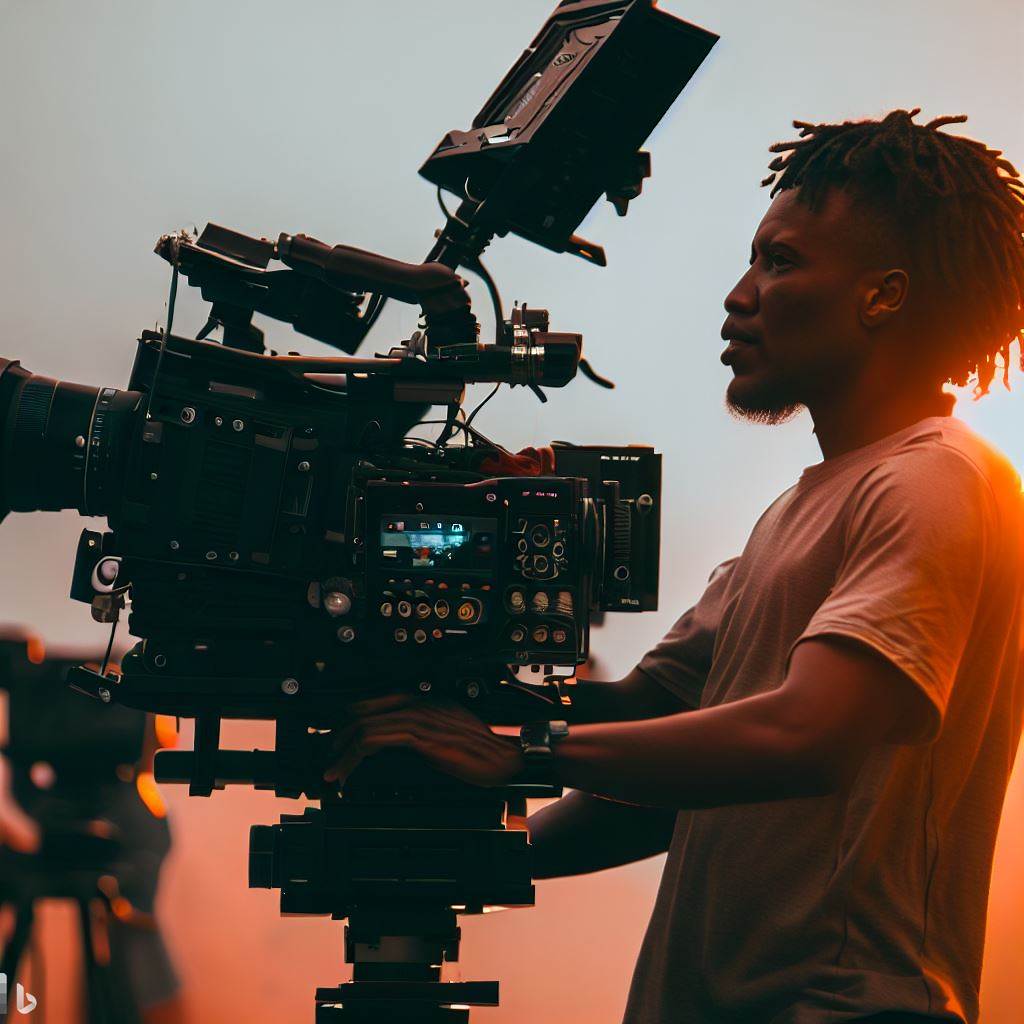Introduction
Music and activism in Nigeria is a fascinating and powerful topic that has gained significant attention in recent years. Nigerian Artists Role in Music and Activism is a reoccurring act in the scene
Throughout history, music has played a pivotal role in social movements, serving as a tool for expression, unity, and inspiration.
The thesis statement of this post is that Nigerian artists have a crucial role in driving social change through their music.
Music as a Catalyst for Change
- Nigerian artists have used their music as a platform to address relevant social issues.
- Their lyrics tackle subjects such as corruption, inequality, and injustice, sparking important conversations within society.
- The raw emotion and relatability of their music resonate with listeners and draw attention to pressing issues.
Music and Social Movements in Nigeria
- Nigerian artists have actively participated in various social movements, providing a voice for the marginalized and oppressed.
- Their songs have become anthems for protests, amplifying the messages of activism and galvanizing the masses.
- Artists like Fela Kuti and Burna Boy are prime examples of the power of music in instigating change and inspiring action.
The Influence of Nigerian Artists
- Nigerian artists in the music industry wield immense influence due to their popularity and reach.
- They hold the ability to shape public opinion, steer conversations, and mobilize communities for action.
- By leveraging their platforms, these artists raise awareness and push for social reform.
In the end, Nigerian artists have an undeniable impact on driving social change through their music.
Their ability to address societal issues, participate in social movements, and influence public opinion is crucial in effecting positive transformation.
Music and activism in Nigeria are intrinsically linked, making it imperative to recognize and support the artists driving this change.
Historical Context of Music and Activism in Nigeria
Fela Kuti: Using Music as a Tool for Activism
Fela Kuti, a legendary Nigerian musician, played a pivotal role in utilizing music as a vehicle for activism.
He was a highly influential figure in the 1970s and 1980s, using his music to challenge the political elite and advocate for social change.
Fela Kuti’s music addressed various societal issues, including government corruption, human rights violations, and inequality.
With his band, Africa ’70, he created a unique Afrobeat sound that combined elements of jazz, funk, and traditional Nigerian music.
This fusion of genres not only captivated audiences but also served as a powerful medium for spreading his political messages.
Kuti’s lyrics were poignant and thought-provoking, often criticizing the ruling class and highlighting the struggles of the common people.
Songs like “Zombie” and “International Thief Thief” condemned the oppressive military regime and called for justice and accountability.
Other Influential Nigerian Artists Promoting Social Change
Apart from Fela Kuti, several other Nigerian artists have left an indelible impact on society by using their music to promote social change.
Their songs served as anthems for various movements, inspiring generations of Nigerians to fight for a better future.
1. Sunny Ade: The King of Juju Music
Sunny Ade, also known as the King of Juju music, combined elements of traditional Yoruba music with modern influences to create a distinct sound that resonated with the masses.
His songs reflected the struggles and aspirations of ordinary Nigerians, highlighting the importance of unity and resilience.
Ade’s timeless classics like “Ja Funmi” and “Synchro System” touched on themes of love, peace, and cultural identity.
These songs became rallying cries during periods of political unrest and symbolized the collective spirit of Nigeria’s social movements.
2. Ebenezer Obey: The Chief Commander
Ebenezer Obey, often referred to as the Chief Commander, utilized his music to address social and moral issues.
His songs preached morality, family values, and the importance of education while critiquing societal vices.
Obey’s hit track “Board Members” advocated for transparency and accountability among government officials, urging them to serve the people selflessly.
His music resonated with Nigerians across all ages and social classes, fostering a sense of responsibility and demanding positive change.
3. Onyeka Onwenu: The Elegant Stallion
Onyeka Onwenu, renowned as the Elegant Stallion, used her powerful voice to champion women’s rights and social justice.
Her music celebrated womanhood and challenged gender norms, inspiring a generation of women to break barriers and fight for equality.
Onwenu’s songs like “One Love” and “Bia Nulu” encouraged unity, love, and understanding among Nigerians.
She emphasized the need for peaceful coexistence and showcased the strength of a united front in achieving social transformation.
In fact, the history of music and activism in Nigeria is rich and diverse. Fela Kuti’s immense contribution laid the foundation for future generations of Nigerian artists to use music as a tool for social change.
Artists like Sunny Ade, Ebenezer Obey, and Onyeka Onwenu continued this legacy, inspiring movements and igniting the desire for a better society.
Through their music, they brought attention to social issues, fostered unity, and challenged the status quo, leaving an indelible mark on Nigeria’s social and political landscape.
Read: Studying Cinematography in Nigeria: Top Schools to Consider
Music as a Platform for Addressing Social Issues
How Nigerian artists use music to raise awareness about social issues
Nigerian artists effectively use music to raise awareness about social issues. Artists tackle topics such as corruption, inequality, and human rights abuses through their music.
- They address these issues through powerful lyrics and melodies that resonate with listeners.
- By highlighting these problems through their music, they bring attention to the social issues that plague Nigerian society.
- Artists use their platform to educate the public and encourage dialogue on these important matters.
Songs have sparked conversations and brought attention to social issues.
- For example, Fela Kuti’s song “Zombie” criticized the Nigerian military and raised awareness about corruption.
- Similarly, Burna Boy’s “Ye” highlights the struggles faced by the youth in Nigeria.
- These songs have ignited discussions and sparked activism, leading to social change.
The power of lyrics and storytelling in conveying messages effectively
Lyrics and storytelling play a powerful role in conveying messages effectively. Specific songs have made a significant impact on listeners by addressing social issues.
- One notable example is Nneka’s “Heartbeat,” which sheds light on human rights abuses and gives a voice to the oppressed.
- The poignant lyrics and emotional delivery resonate with the audience, creating a deep connection.
- Through these songs, artists inspire empathy and encourage action among their listeners.
Music has the ability to influence public opinion and shape narratives.
- Nigerian artists use their storytelling skills to challenge prevailing narratives and offer alternative perspectives.
- The power of music lies in its ability to reach a wide audience and evoke emotions that can lead to social change.
- By presenting social issues in a relatable and captivating manner, artists influence public opinion and drive societal transformation.
In review, Nigerian artists effectively utilize music as a platform to address social issues and raise awareness among the public.
They tackle topics such as corruption, inequality, and human rights abuses, sparking conversations and bringing attention to these pressing matters.
The power of lyrics and storytelling further enhances the impact of their messages, making listeners empathize and take action.
Through their music, Nigerian artists influence public opinion and shape narratives, ultimately contributing to positive social change.
Read: The Nigerian Hip Hop Scene: Artists to Watch
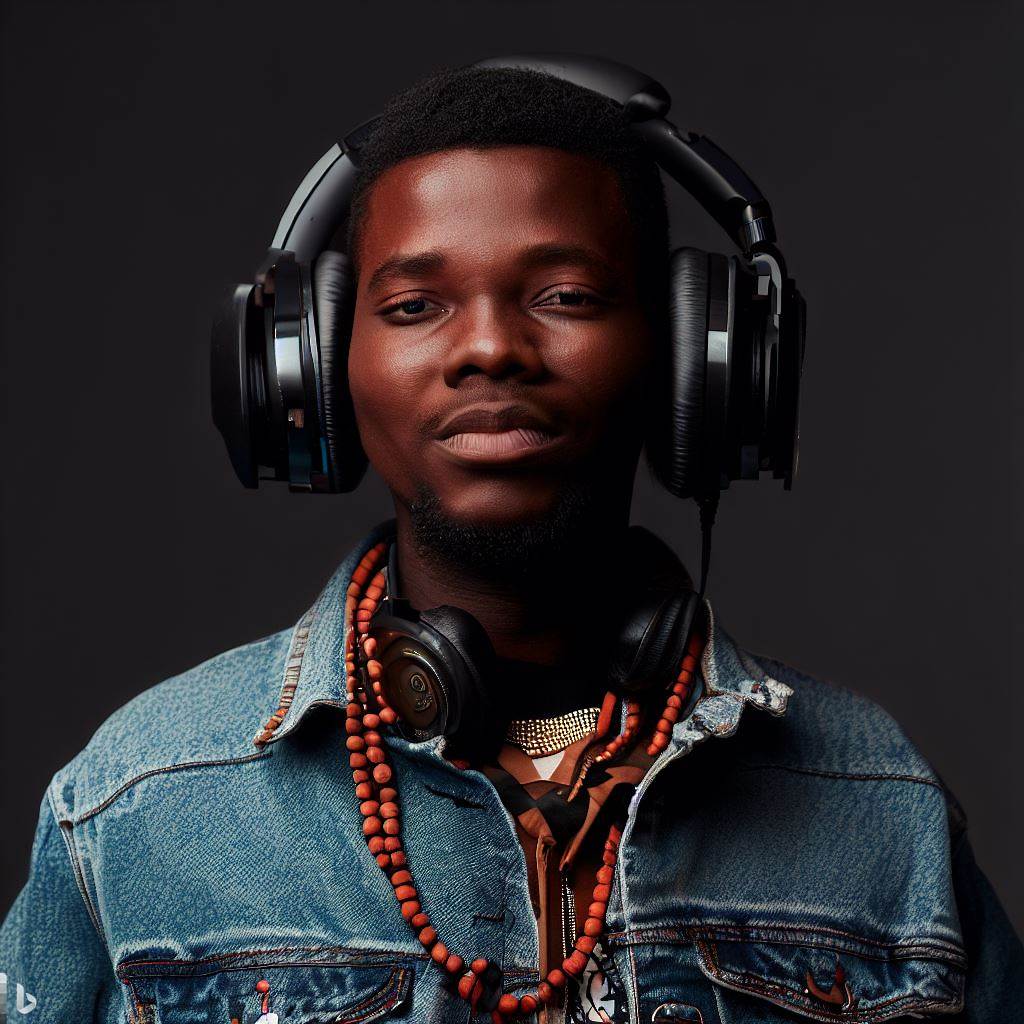
Artists as Activists: Voices for Change
Notable Nigerian artists who actively engage in activism
- Fela Kuti, the legendary musician, used his music to criticize corruption and advocate for political change.
- Seun Kuti, Fela Kuti’s son, carries on his father’s legacy by using his music to address social issues.
- Nneka, a Nigerian-German singer, advocates for human rights, including the rights of women and refugees.
The risks and challenges faced by artists involved in activism
- Censorship: Many artists face censorship from the government, limiting their freedom of expression.
- Threats: Activist artists are often threatened by those who disagree with their messages.
1. Instances of censorship, threats, and backlash
Nigerian artists face censorship through the banning of their songs or performances by the government. For example, Fela Kuti’s music was regularly banned during his career due to its political messages.
Additionally, activist artists often receive threats for challenging the status quo. Seun Kuti, for instance, has faced backlash for his critique of political leaders and corruption.
2. How Nigerian artists continue to overcome these challenges
Despite facing censorship and threats, Nigerian artists persist in their activism. They find alternative ways to share their messages, such as through online platforms or underground events.
Furthermore, artists build solidarity networks with like-minded individuals and organizations to amplify their voices and protect each other from backlash.
Through their involvement in grassroots movements and organizations, Nigerian artists actively contribute to societal change.
They use their platform to advocate for issues such as political reform, human rights, and social justice.
By highlighting notable Nigerian artists who engage in activism, we can recognize the crucial role they play in inspiring and mobilizing communities for change.
Read: Challenges and Rewards of Cinematography in Nigeria
Music as a Unifying Force in Nigeria
The role of music in bridging cultural, ethnic, and religious divides
- Music has the remarkable ability to bring people from diverse backgrounds together.
- Nigerian artists, through their music, have been instrumental in uniting people across cultural, ethnic, and religious lines.
- Despite Nigeria’s cultural and religious diversity, music has become a common language that everyone understands and enjoys.
- Artists like Fela Kuti, known for his Afrobeat genre, used their music to challenge social and political issues, creating a sense of unity among the people.
- The infectious rhythms and powerful lyrics transcend differences and create a shared experience among listeners.
Examples of collaborations between artists from different regions and tribes
- Collaborations between Nigerian artists from different regions and tribes emphasize solidarity and diminish tribalistic divides.
- Artists like Burna Boy and Wizkid have collaborated with international artists, further breaking down cultural barriers and promoting unity.
- These collaborations showcase the beauty of diversity while reminding Nigerians of their shared heritage.
The impact of music festivals and concerts in fostering unity and solidarity
- Music festivals and concerts provide platforms for artists to showcase their talents and connect with diverse audiences.
- The Felabration music festival, held annually in Lagos, celebrates the life and music of Fela Kuti, uniting fans from all over Nigeria.
- Such festivals create an atmosphere of togetherness, where people can celebrate their collective love for music and appreciate the diverse Nigerian talent.
- Concerts featuring multiple artists from different regions allow attendees to experience various cultures and music styles, promoting tolerance and understanding.
- Music festivals also serve as spaces for dialogue and exchange, where individuals can engage with the social and political issues addressed by Nigerian artists.
In addition, music has proven to be a powerful force in unifying the diverse Nigerian society.
It transcends cultural, ethnic, and religious boundaries, allowing people from different backgrounds to come together and share a common experience.
Through collaborations between artists from different regions and tribes, as well as the impact of music festivals and concerts, unity and solidarity are fostered.
Nigerian artists play a significant role in promoting social cohesion and challenging prevailing divides through their music.
It is evident that the power of music extends far beyond entertainment, acting as a catalyst for change and unification in Nigeria.
Read: Artist Management: The Nigerian Perspective
Conclusion
Nigerian artists have shown immense dedication and courage in using music as a powerful medium for activism and social change.
Their music serves as a platform to raise awareness and shed light on pressing issues faced by the nation.
Through their lyrics and performances, they challenge societal norms, address corruption, violence, and inequality, and advocate for a better future.
Nigerian artists play a significant role in driving social change, as their music resonates with the people and has the potential to shape public opinion.
They have become the voice of the oppressed and marginalized, speaking truth to power and inspiring others to take action.
It is crucial to continue supporting and appreciating the work done by these artists. By doing so, we acknowledge the importance of their activism and encourage them to carry on their efforts.
Their music not only entertains but also serves as a catalyst for social justice and change. Looking ahead, there is immense potential for music and activism to shape a better future for Nigeria.
By addressing societal issues and advocating for positive reforms, Nigerian artists can contribute to the country’s progress.
It is through their resilience and determination that we can envision a Nigeria where equality, justice, and prosperity prevail.
Let us unite in our support for these artists and recognize the transformative power of music and activism.

